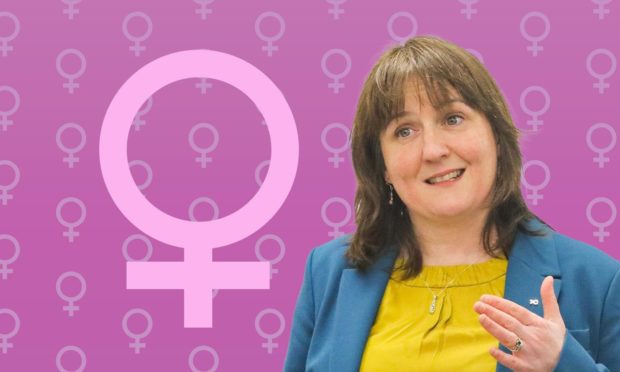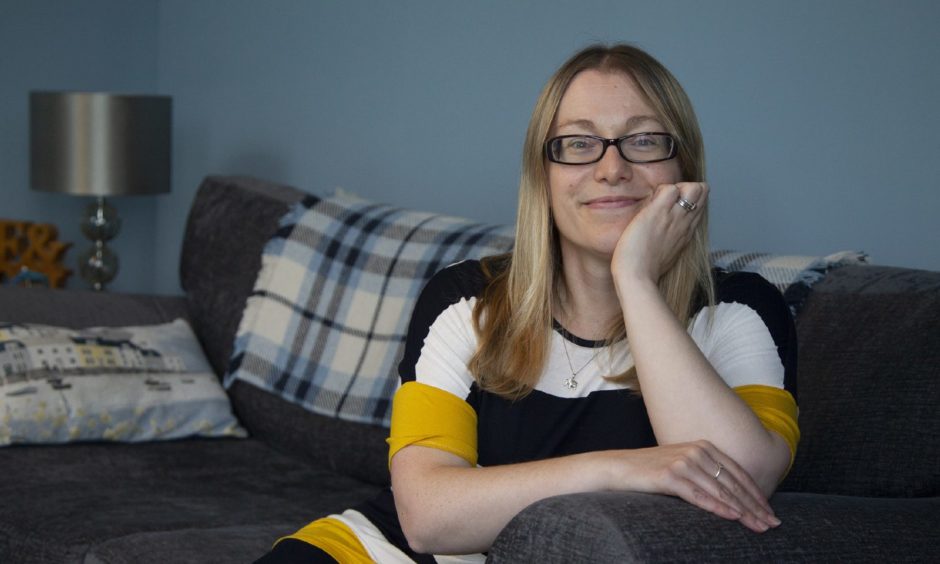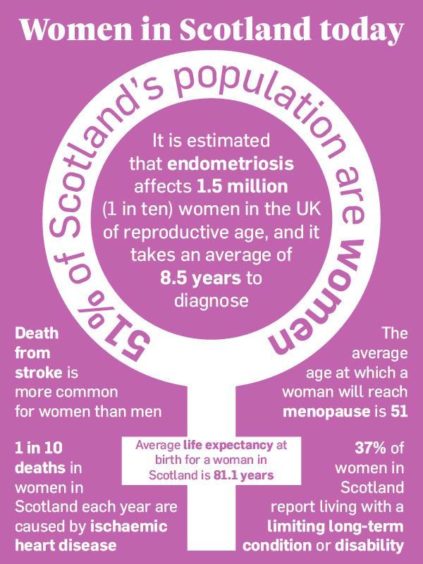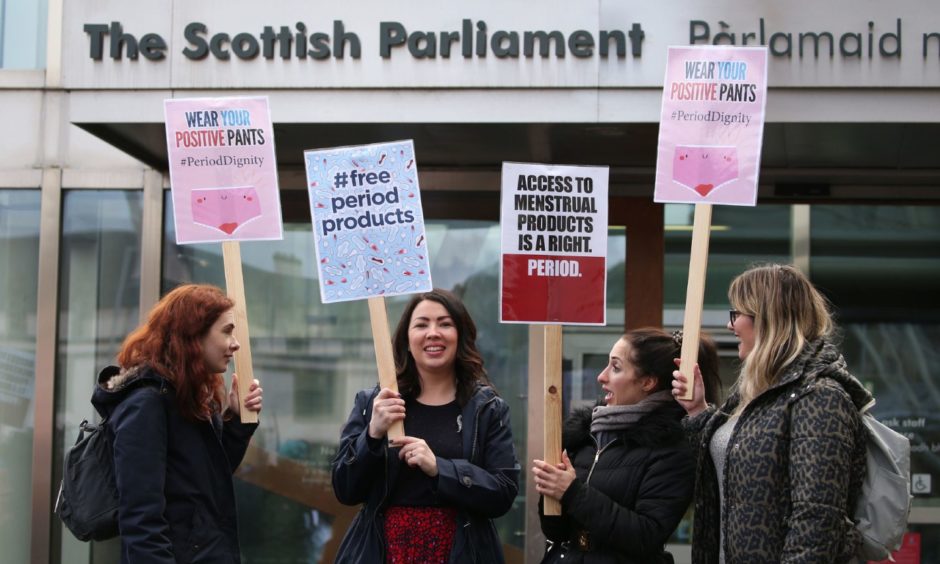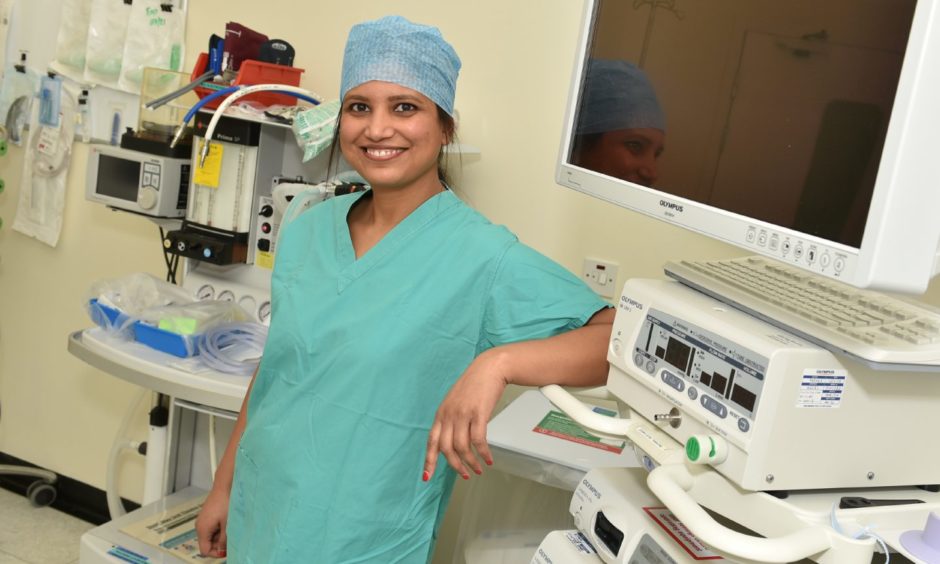The Scottish Government has published the UK’s first women’s health plan, outlining actions on endometriosis and menopause.
Women’s Health Minister Maree Todd said there is a “clear need for wider systemic change” to ensure health and social care services meet the needs of all women.
The new plan includes 66 actions, including better endometriosis diagnosis and treatment and specialist menopause services.
The long-term condition, which affects 1.5 million women across the UK, sees tissue similar to the lining of the womb start to grow in other places, such as the ovaries and fallopian tubes.
Endometriosis
Vicky Chapman, who leads the Endometriosis UK Dundee Support Group, was only diagnosed with the condition aged 29, after first getting her periods at 11.
The 32-year-old said the SNP’s manifesto pledge to reduce waiting times for diagnosing endometriosis from more than eight years to less than a year by 2026, is a “welcome aim”.
She added: “I hadn’t heard the word endometriosis until I was 28 and I do feel like if I’d had an awareness of the condition – or the doctors had mentioned endometriosis – then I might not be in the position I’m in now.
“For me it’s a huge deal that the government are looking to get menstrual wellbeing on the curriculum and for more education to be out there for both young women and girls but also doctors as well.”
We published our own series examining endometriosis last year, in response to the UK Government opening its own inquiry into the challenges faced by sufferers.
What’s in the women’s health plan?
The 68-page women’s health plan, which Nicola Sturgeon pledged to publish in the first 100 days of the new SNP government, is the first in the UK of its kind.
Ms Todd described the plan as “ambitious” but said it is clear “wider change must happen to ensure all our health and social care services meet the needs of all women, everywhere”.
The plan’s recommendations include:
- ensure women who need it have access to specialist menopause services for advice and support on the diagnosis and management of menopause.
- improve access for women to appropriate support, speedy diagnosis and better treatment for endometriosis.
- appointing a national Women’s Health Champion and a Women’s Health Lead in every NHS board.
- improve access to information for girls and women on menstrual health and management options.
- improving information and public awareness of heart disease symptoms and risks for women.
- establishing a Women’s Health Research Fund to close gaps in scientific and medical knowledge.
Ms Todd said: “The women’s health plan signals our ambition and determination to see change for women in Scotland, for their health and for their role in society.
“We want Scotland to be a world leader when it comes to women’s health.”
‘Overlooked and underfunded’
Scottish Labour MSP Monica Lennon, who led the campaign to make Scotland the first country in the world to provide period products for free, said women’s health has “always been overlooked and underfunded”.
While she welcomes the “ambitious commitments” contained within the new plan, the period poverty campaigner said many will require “adequate funding”, the details of which are “as yet unclear”.
Ms Lennon added: “I’m glad the plan includes a commitment to reducing endometriosis diagnostic waiting times: a disease that affects around 10% of women between the ages of 25 and 40 and an issue I have campaigned on for some time.
“We’ll scrutinise the proposals at the Cross Party Group on Women’s Health and hope the minister will join us to hear from campaigners and colleagues there.”
‘Health inequalities’
The plan states that women face “particular health inequalities and, in some cases, disasdvantages because they are women”.
It adds there is “considerable evidence of women being undertreated or presenting disease in a different way to men” yet there is a “significant data gap in medical research”.
Dr Lucky Saraswat, consultant gynaecologist at Aberdeen Royal Infirmary, said the plan is a “very important step from the Scottish Government”.
The endometriosis specialist said getting a “working diagnosis” within a year is “definitely possible”.
However, endometriosis can only be confirmed by a laparoscopy, a keyhole surgery that allows a surgeon to access the inside of the abdomen, and therefore “more clarity” is required on the type of diagnosis included within the target.
Dr Saraswat also welcomed recommendations to improve information on menstrual health as women suffering from menstrual conditions are “often not aware they need help”.
The women’s health plan is part of wider work being undertaken across Scottish Government to improve women’s health, particularly in regards to mesh, maternal health, and screening services.
